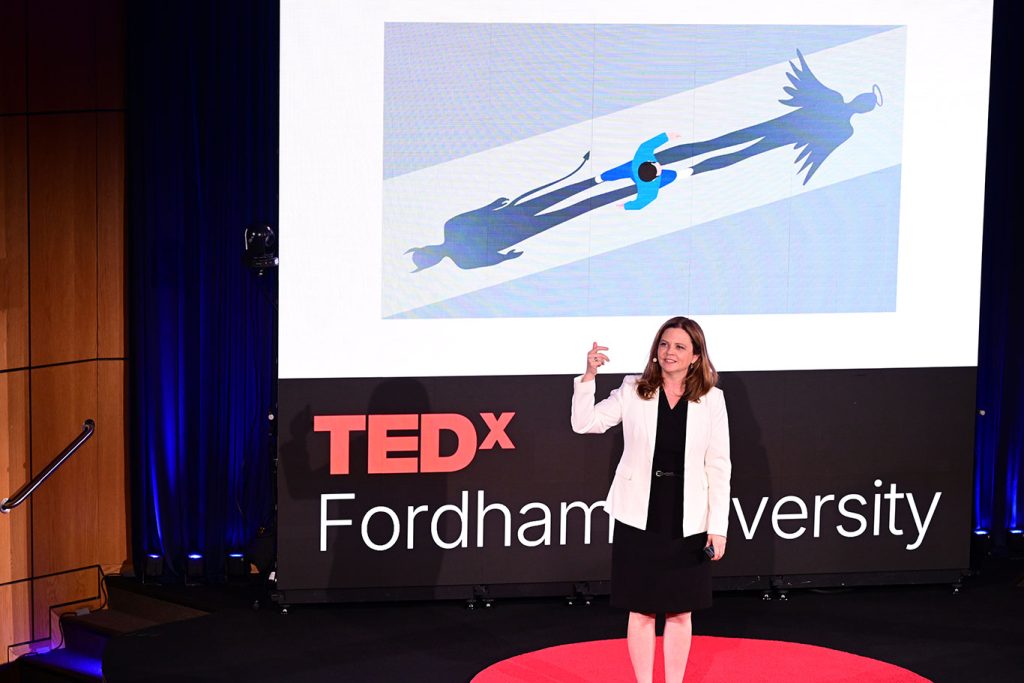On April 7, seven Fordham experts in the fields of social justice, liberal arts, science, and policy offered reasons for hope at TEDxFordhamUniversity: Propelling Humanity Forward. The gathering, which drew members of the Fordham community to the Lincoln Center campus, was also livestreamed.
Learn more about the talks and watch the videos below.
How a 500-Year-Old Tool Can Become Your New Superpower
Tania Tetlow, President of Fordham
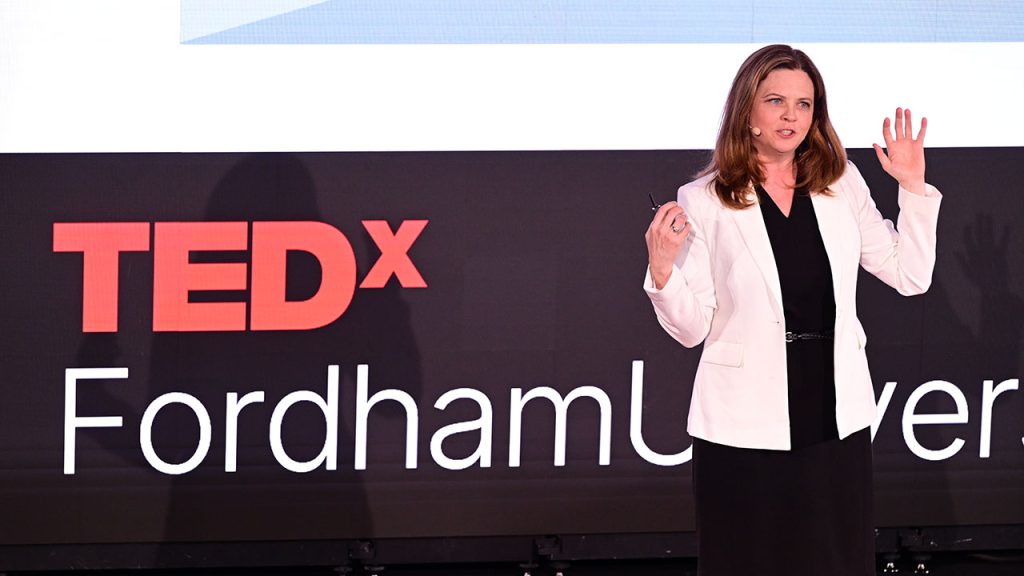
A core part of being fully human is being empathetic and kind, Tetlow said, and it’s the most important thing we bring to decision-making, especially in the age of AI. The Jesuit principles of discernment, she said, can guide us.
“When we look at the neuroscience of human consciousness, the insights of modern psychology, and the research on leadership, they all point to the truth of a 500-year-old tradition. The Jesuit principles of discernment help capture the secrets of human wisdom,” she said.
Watch Tania Tetlow’s talk.
How to Build Climate Change Resilience in Urban Heat Islands
Annika Hinze, Ph.D., Associate Professor of Political Science and Director of Fordham’s Urban Studies Program
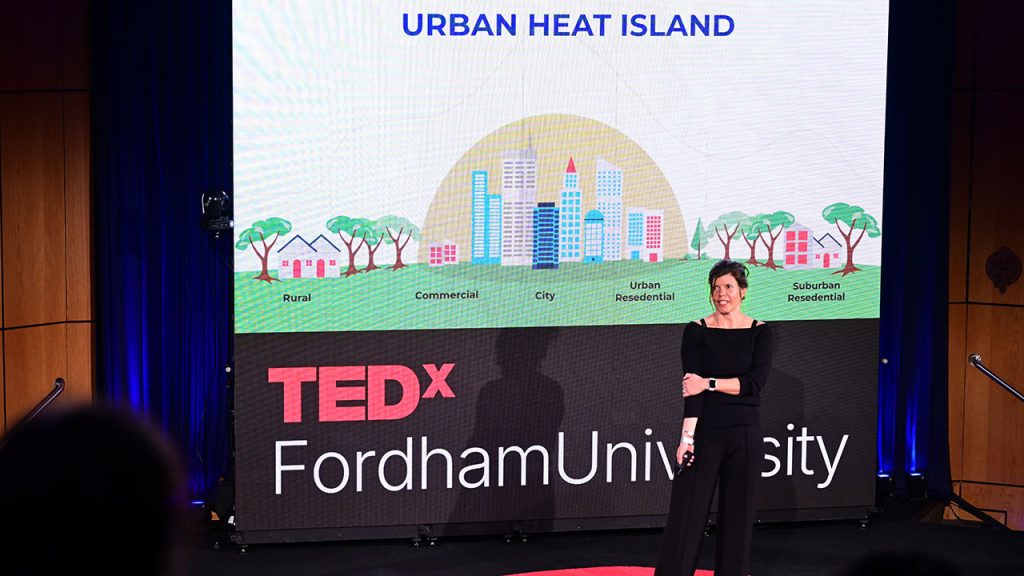
Last year, 30% of the world’s population experienced life-threatening heat events for at least 20 days of the year. By the year 2100, that percentage is predicted to rise dramatically. Most of those people live in cities, and perhaps paradoxically, Hinze said, one of the solutions should be less air conditioning.
“Have you ever walked by a residential building on a hot summer’s day and been hit by the hot air emanating from all the window units and HVACs?” she said. “Have you ever walked from an urban street into a green space on a summer morning or evening and noticed the palpable temperature difference? If so, you’ve experienced the urban heat island effect.”
Watch Annika Hinze’s talk.
Dancing Your Way to Greatness
Courtney Celeste Spears, FCLC ’16, Professional Dancer and Dance Teacher
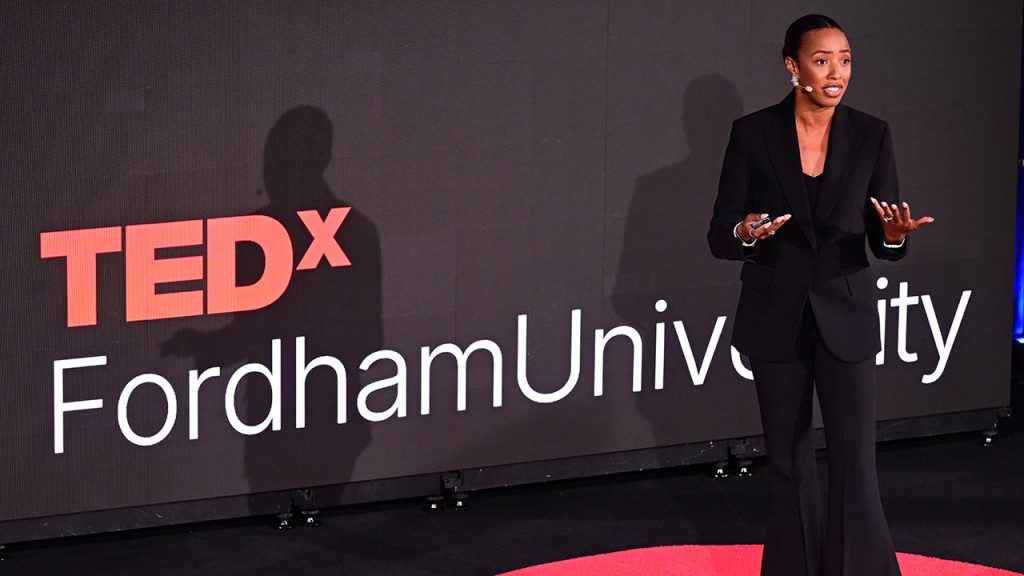
Dancing “helped unlock something deep in my spirit,” said Spears, who graduated with an Ailey/Fordham BFA. She had some success dancing professionally, but her plans to dance full-time with a company didn’t materialize, so she focused on other passions, like teaching, and found success. Those “other” passions are more important than we realize.
“Think of that thing that you love to do that brings you so much joy, peace, and inner calm,” she said.
“What if I were here to tell you that [those things you love]are a set of keys that were designed individually and perfectly for you to unlock your truest potential?”
Watch Courtney Spears’ talk.
Tech for People, Not Platforms or Protocols
Olivier Sylvain, Professor at Fordham School of Law
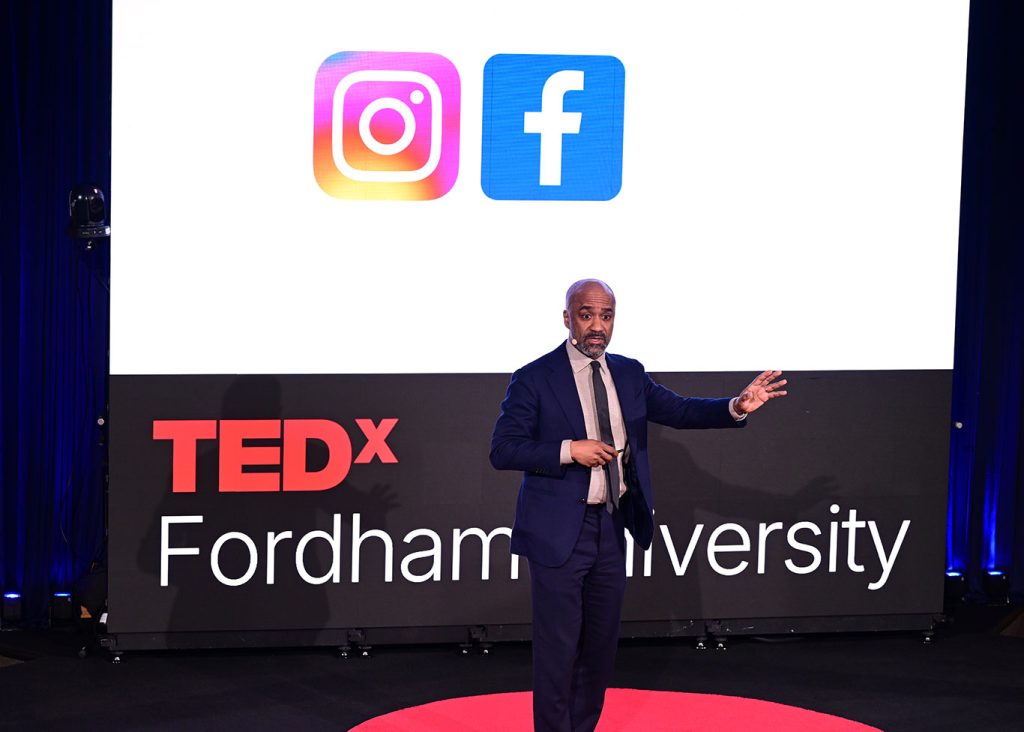
Social media giants have escaped government regulation because they’re shielded by laws that grant them enormous latitude under the First Amendment’s free speech provisions. But Sylvain rejects the notion that they are “pure speech platforms,” and says that they bear some responsibility when, for example, a 10-year-old kills themself after being inspired by a TikTok post to try the “blackout challenge.”
“TikTok says, ‘You can’t blame us. This is just information that passes through our system. It’s content from other people,” he said.
“But of course, this can’t be right. They are delivering this content on a feed that is called ‘For you.’ It is designed to do this. This is not speech. This is an industrial process for holding attention.”
Watch Olivier Sylvain’s talk.
How We Can Reverse Aging
Ronald A. DePinho, M.D., FCRH ’77, Professor, Department of Cancer Biology, The University of Texas
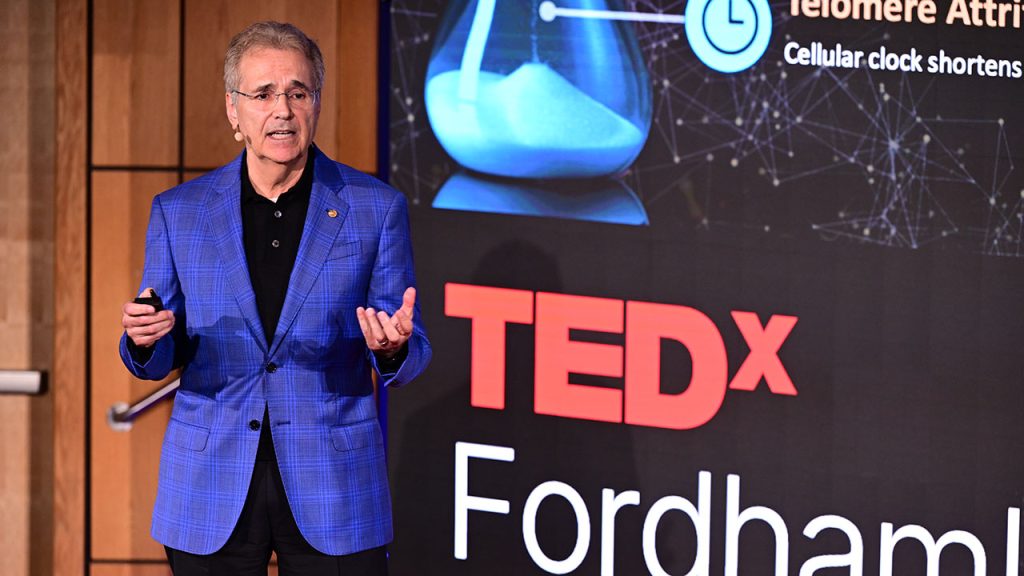
One way scientists are trying to arrest, stop, and perhaps even reverse the gradual accumulation of damage and loss of function in cells (otherwise known as aging) is by focusing on protective structures made of DNA and protein that cap the ends of chromosomes.
They’re called telomeres, and they play a crucial role in cell aging and stability by preventing DNA degradation and chromosome fusion. According to DePinho, experiments conducted in mice suggest that a tool for reviving telomeres is not far off.
“We know that if we understand the mechanisms of biology, we can actually change the trajectory of that biological process,” he said.
“So we can think of treating the root causes of aging and then usher in an era of regenerative medicine as opposed to reactive sick care medicine.”
Watch Ronald DePinho’s talk.
Cityscapes: How Urban Habitat Can Reshape Conservation
Dustin Partridge, Ph.D., Director of Conservation and Science at NYC Bird Alliance
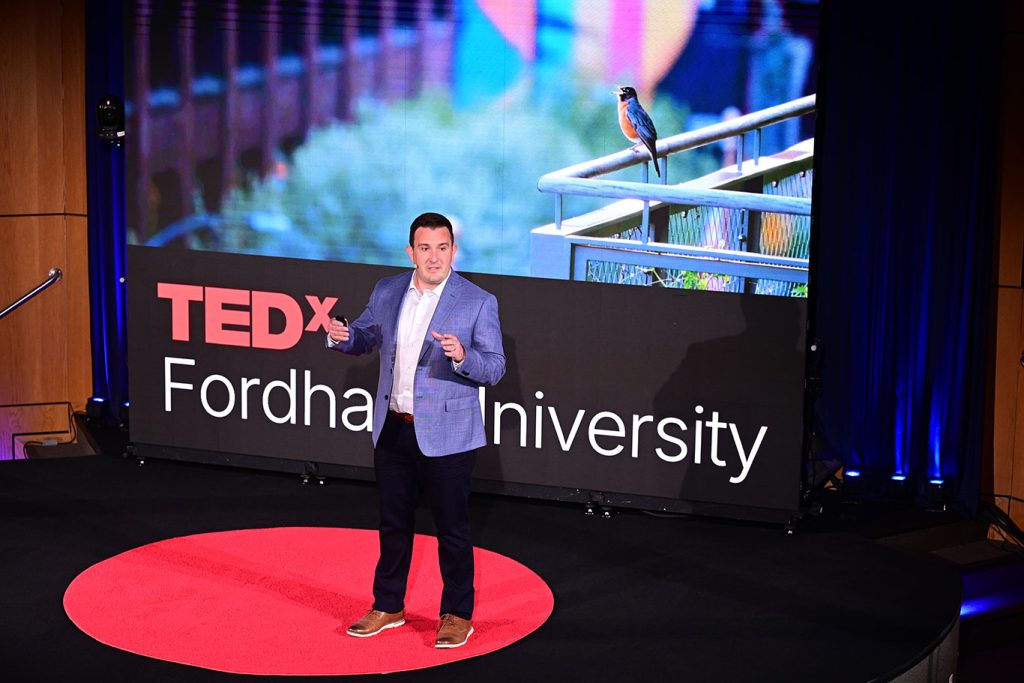
New York City may not be the first place that comes to mind when you think of wildlife conservation, but it contains an astonishing array of species that either migrate through or call it home. Partridge argues that we can build a future in which healthy habitats are woven into the fabric of urban life, using places such as the Javits Convention Center’s green roof as a guide.
“I view cities with hope, because the vision of the future that I see is one where cities are covered by green space and wildlife-safe features that can be enjoyed by everyone, improving quality of life for city residents, improving cities overall, making us feel better, and protecting global biodiversity,” he said.
Watch Dustin Patridge’s talk.
How to Flourish: An Ancient Path to Modern Joy
David Marcotte, S.J., Professor of Psychology
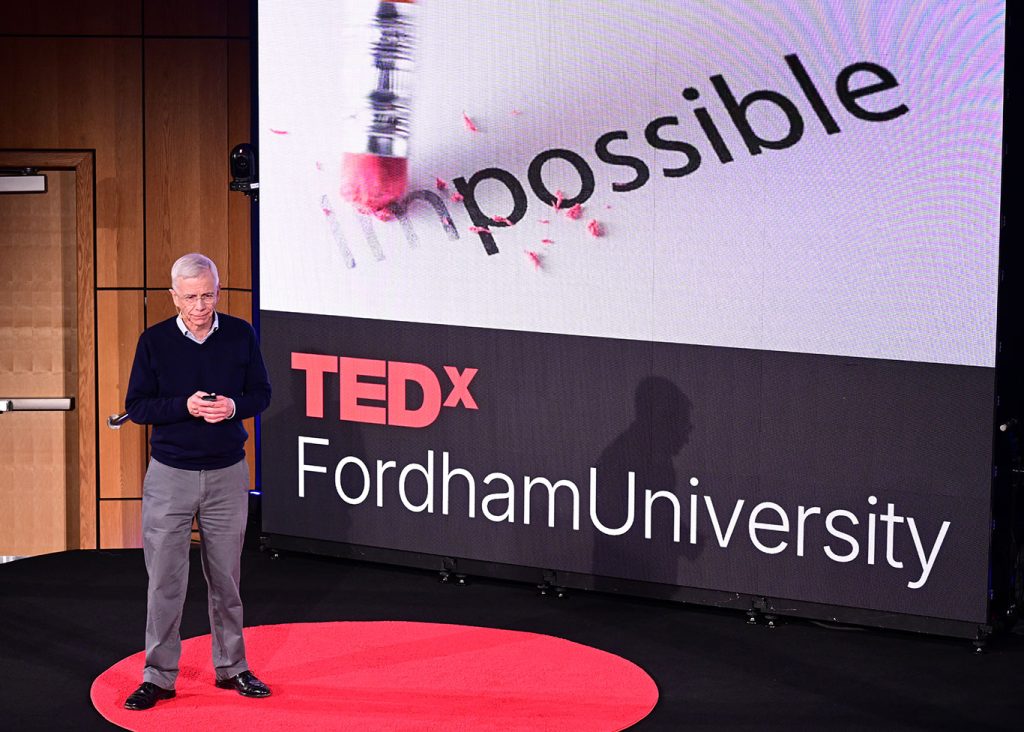
It’s not exactly a secret that the stronger the connections we have to friends, relatives, co-workers, and even casual acquaintances, the happier we are. What’s less known is the proven method for getting ourselves to an ideal place for that to happen. It’s called loving kindness, and Father Marcotte suggests that one way to get there is by repeating to yourself the phrase “May I be happy and free from suffering,” and then extending the same to others.
“It works really well because we’re creating warmth and tenderness for others,” he said.
“When we create that warmth and tenderness and the positive emotion, we begin connecting even if we don’t realize it’s happening.”
Watch Father Marcotte’s talk.

